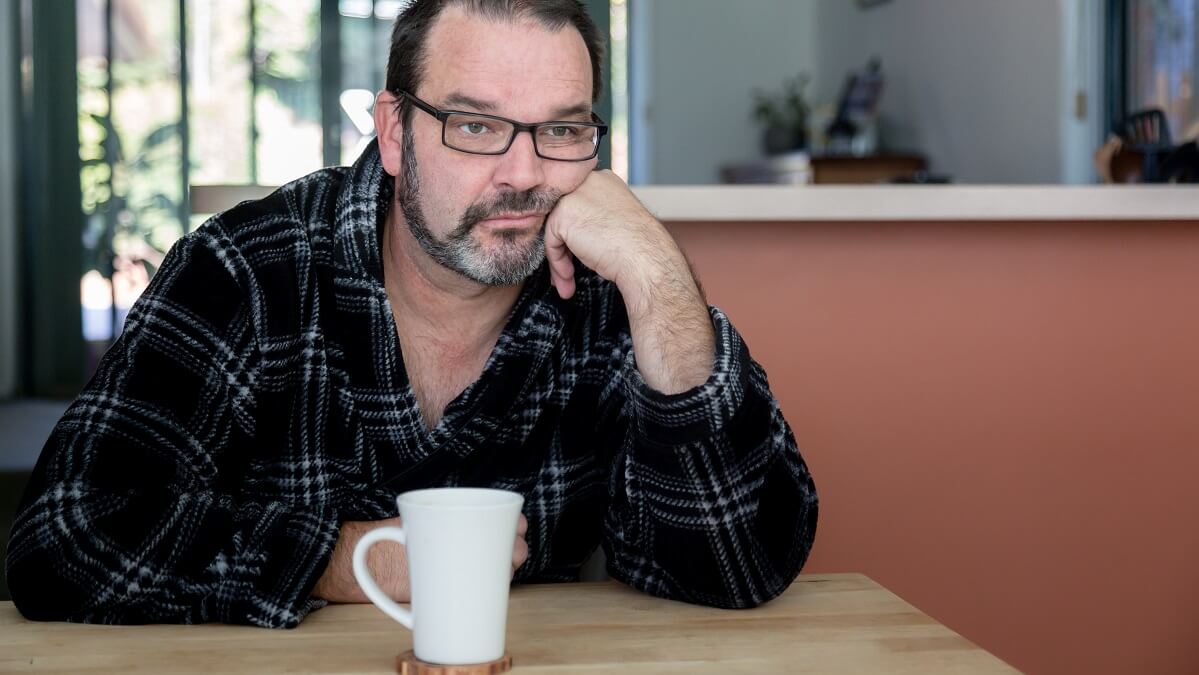You know that gnawing sense of discontent or loss of optimism?
Perhaps you’re feeling a bit restless, or disappointed about how things have turned out.
The happiness curve theory suggests there is a ‘U-shaped curve’ of happiness, with our 40s the unhappiest age before things bounce back.
Midlife can be difficult and often brings a lot of pressures, says Christina Bryant. She’s an associate professor from the University of Melbourne who researches the psychology of ageing.
“It’s partly because there’s just a lot going on in peoples’ lives,” she said.
“Often, at this stage, there’s a high-pressure job, family pressures, caring duties for children and ageing parents, the death of loved ones has usually been experienced by this point, all of which undermine wellbeing.
“It’s not quite a time where you’re just cruising along.”
In short – life gets real. (As if it hadn’t already).
So what’s the good news?
What makes for a meaningful life?
Of course, thriving in midlife is perfectly possible, says Dr Peggy Kern, an associate professor at the Centre for Positive Psychology at the University of Melbourne.
“Happiness is talked about in different ways – as an emotion or as a deeper level of contentment,” she says.
Specifically, there are two main types of happiness:
- Hedonic happiness (the emotional feeling of being happy) is fleeting but feels good.
- Eudaimonic happiness, a deeper sense of life well lived, arises from things like a sense of meaning and tends to be more long-lasting.
“Importantly, positive habits focus more on creating a life of contentment (eudaimonic happiness). Research also shows the more you pursue hedonic happiness, you might never be happy,” Dr Kern says.
Midlife change is inevitable
True, all change is inevitable.
And there are certain transitions we need to negotiate in life, Dr Bryant says.
She references German-American developmental psychologist and psychoanalyst Erik Erikson’s work as a model helpful for understanding meaning and contentment.
“And in midlife, from around 40 to 65, it’s about developing your own sense of legacy,” she says.
“You become a bit more focused on the next generation. Erikson called this generativity.
“Generativity is about the passing on of ideas, service, and a concern for establishing, guiding and contributing to the life of the next generation.”
This often goes beyond caring or guiding your own children, to practices such as volunteering, mentoring, engaging in community activism, or encouraging other people’s growth.
What about the final chapter?
Ego integrity versus despair is the final stage of Erikson’s theory.
“Later in life, Erikson talks about the need to resolve the conflict between the two. By integrity he means a sense of wholeness, a sense of life having a narrative,” Dr Bryant says.
This stage begins at around age 65. It’s during this time we contemplate our accomplishments and can develop integrity if we see ourselves as leading a successful life.
“Sure, it may have had its ups and downs. But we only get one shot at it,” Dr Bryant says.
“If you don’t come to that sense, which he calls ego integrity, then older people are more at risk of that feeling of despair and a low satisfaction in life.”
What did the longest study on happiness find?
The most consistent finding of an 85-year Harvard study found the number one thing that makes us happy in life, and even claims to help us live longer, is:
- Good relationships. They keep us happier and healthier.
Close and quality relationships are the connections that help protect people from life’s hurdles, help to delay mental and physical decline, and are better predictors of long and happy lives than social class, IQ, or even genes.
“Loneliness kills. It’s as powerful as smoking or alcoholism,” notes study director Robert Waldinger.
“The people who were the most satisfied in their relationships at age 50 were the healthiest at age 80.”
Ultimately, what makes life meaningful depends on the person, it depends on what you value in life, because “meaning arises from our core values being satisfied”, says Dr Kern.
“From identifying what it is that really matters to you – what gets you out of bed each day? – And pursuing that, along with choosing to be content with what you have and do.”
How do you judge your legacy? Do you concur with the belief that relationships are pivotal? Why not share your thoughts in the comments section below?
Also read: Longevity experts share their top lifestyle tips

